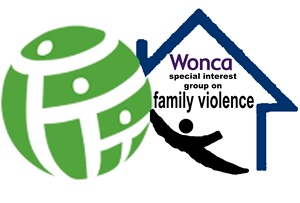Special Interest Group on Family Violence 'Call To Action'

The
WONCA Special Interest Group on Family Violence calls on all Member Organizations in WONCA to address family violence policy, training and procedures as a matter of urgent priority in order to have their members supported and resourced to manage this common problem effectively and in an evidence-based manner.
Global prevalence figures indicate that one in three women worldwide have experienced physical and/or sexual violence in their lifetime. A quarter of all adults report having been physically abused as children; one in five women and one in 13 men report having been sexually abused as a child. Around one in six older people experienced some form of abuse in the past year, and this rate is expected to increase as many countries are experiencing rapidly ageing population.
The 2016 World Health Assembly's global plan of action recommends strengthening family violence health system leadership and governance; health service delivery and providers' capacity to respond to family violence (in particular against women and children); and to improve information and evidence. There is overwhelming evidence that family violence (includes intimate partner violence, child abuse and elder abuse) is a major public health problem, due to short and long term effects on quality of life, health, social damage and costs to individuals, families, and communities. Family violence is associated with societal issues of gender inequity and poverty and presents a major challenge for family medicine and society more generally. However, family physicians usually have long term relationships with their patients and are in a unique position to intervene in this chronic social condition that impacts on health.
This Plan of Action aligns with WONCA's mission to improve quality of life, promote gender equity and comprehensive care for the family, through supporting family physicians to exchange knowledge and information on family violence and connect with other world organizations concerned with the health effects of family violence.
Recommendation 1:
Encourage each national college and academy to develop policy and implementation strategies on family violence identification and response for intimate partner violence, child abuse and elder abuse.
Recommendation 2:
National colleges and academies promote basic training at undergraduate, graduate and continuing professional development on identification and support for family violence survivors and their children, recognising the critical need for a systems approach and adequate support for family doctors to undertake this sensitive work.
Recommendation 3:
Contribute to the development of primary care based research, performance and outcome measures for general practitioners/family doctors and primary care teams in each of our member nations to enable evaluation of family violence care.
Recommendation 4:
Assist in making information on family violence accessible on national and international web sites, sharing information and quality resources for interdisciplinary collaboration for health care, advocacy and legal support of families. Policy and practice guidelines should recognise the need for culturally safe strategies for vulnerable groups and adaptation of care to health care settings in high, middle and low income countries.
Call to Action - full document and references